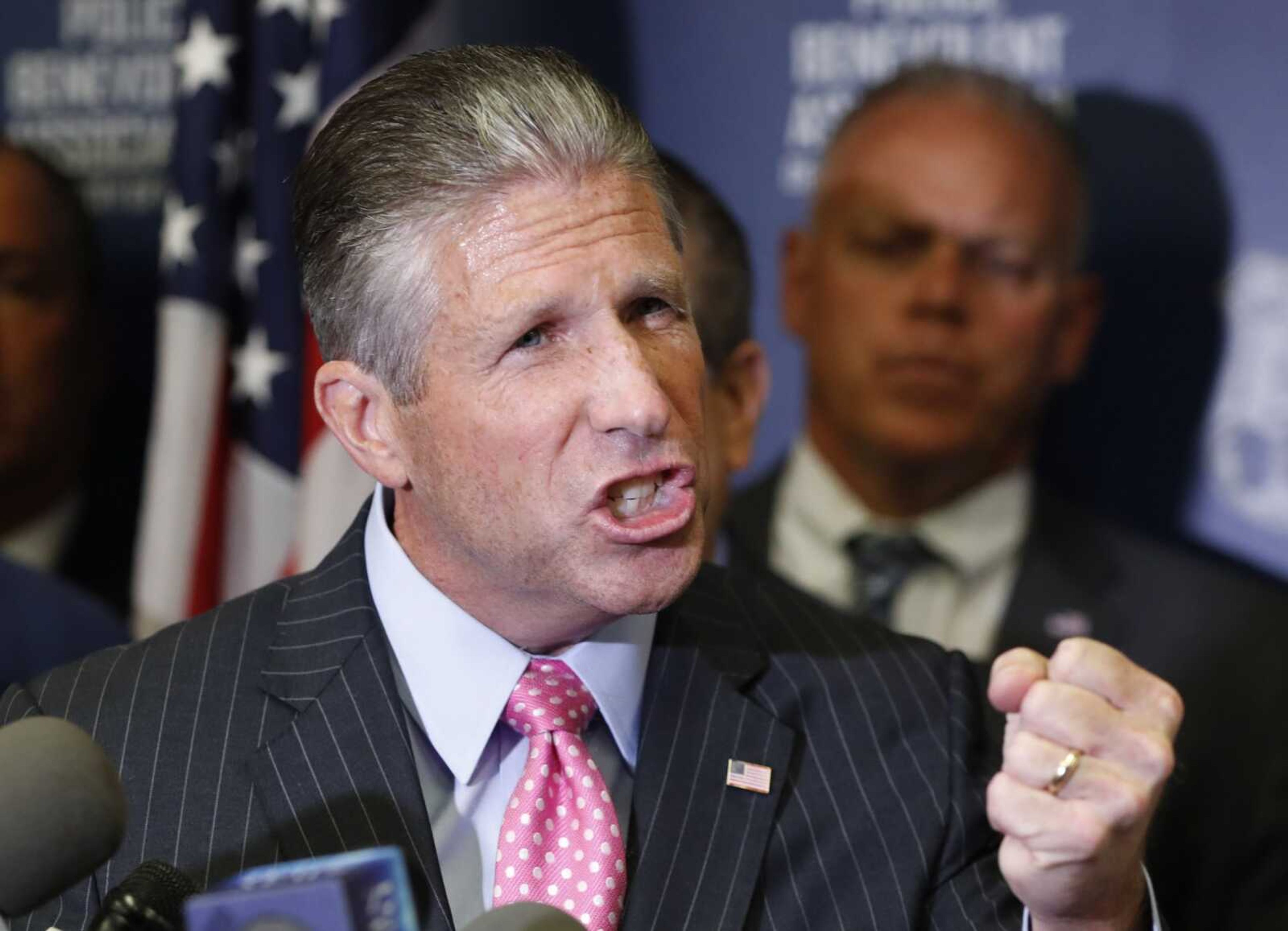Judge: Fire officer in Eric Garner death
NEW YORK -- In a reckoning five years in the making, an administrative judge Friday recommended firing a New York City police officer over the 2014 chokehold death of an unarmed black man whose dying cries of "I can't breathe" fueled a national debate over policing, race and the use of force...
NEW YORK -- In a reckoning five years in the making, an administrative judge Friday recommended firing a New York City police officer over the 2014 chokehold death of an unarmed black man whose dying cries of "I can't breathe" fueled a national debate over policing, race and the use of force.
The city's police commissioner will make a final decision this month on whether to fire officer Daniel Pantaleo, who is white, for his role in Eric Garner's death. Pantaleo was suspended shortly after the judge's decision became public, about two weeks after federal prosecutors closed the book on criminal charges.
Mayor Bill de Blasio hailed the judge's report as "a step toward justice and accountability," while Pantaleo's lawyer and a union leader said it penalized an officer for properly doing his job. The lawyer said he will appeal to state court if Pantaleo is fired.
Garner's mother, Gwen Carr, said the report brought her "some relief" but was overdue and fell short of true accountability.
"It's past time for Mayor Bill de Blasio and the NYPD to end their obstruction, stop spreading misleading talking points and finally take action for my son," she said in a statement.
Garner's death came at a time when a growing public outcry over police killings of unarmed black men sparked the national Black Lives Matter movement. Just weeks later, protests erupted in Ferguson, Missouri, over the fatal shooting of unarmed teenager Michael Brown.
When a Staten Island grand jury declined to indict Pantaleo on state charges in December 2014, demonstrations flared in New York and several other cities.
The administrative judge's findings were provided Friday to Pantaleo's lawyer and the Civilian Complaint Review Board, the watchdog agency acting as a prosecutor at his department trial last spring.
Under department rules, Pantaleo's lawyer will have about two weeks to respond before Police Commissioner James O'Neill makes his decision.
The attorney, Stuart London, said Pantaleo, 33, was disappointed in the judge's recommendation but remains "cautiously optimistic" he ultimately won't be dismissed.
London and Police Benevolent Association president Patrick Lynch urged O'Neill to stand up for Pantaleo, saying he'd done nothing wrong and firing him would leave officers feeling they can't do their jobs without losing them.
"We're calling on Commissioner O'Neill to save the New York Police Department. Allow us to be effective again," Lynch said.
Lynch said, given the decision, police officers might be considered reckless every time they put their hands on someone. He urged officers to keep responding to 911 calls but "take it a step slower" and call for a supervisor instead of using physical force on an uncooperative suspect.
Police department spokesman Phillip Walzak said Pantaleo's suspension was standard in disciplinary cases in which termination is recommended. He wouldn't comment further.
The administrative judge, Deputy Commissioner of Trials Rosemarie Maldonado, had been tasked with deciding whether Pantaleo used a chokehold -- banned by police department policy -- to take Garner to the ground during a confrontation on a Staten Island street.
Pantaleo's lawyers argued he used an approved "seat belt" technique to subdue Garner, who refused to be handcuffed after officers accused him of selling untaxed cigarettes.
London said while Maldonado found a chokehold was used, she concluded in her 45-page report a lot of the contact with the neck was accidental and unintentional. The report has not been made public.
In a bystander's video, it appeared Pantaleo initially tried to use two approved restraint tactics on Garner, much larger at 6-foot-2 and about 400 pounds, but ended up wrapping his arm around Garner's neck for about seven seconds as they struggled against a glass storefront window and fell to the sidewalk.
The footage showed Garner crying out, "I can't breathe," at least 11 times before he fell unconscious. The medical examiner's office said a chokehold contributed to Garner's death.
Civilian Complaint Review Board Chairman Fred Davie said Maldonado's recommendation confirmed what the agency argued at the trial: Pantaleo's use of a chokehold caused Garner's death.
The Rev. Al Sharpton, appearing with two of Garner's children, called on O'Neill to "immediately and unequivocally" to accept the recommendation.
He added: "This is not justice for the Garner family. Justice for the Garner family would have been a federal proceeding or a criminal proceeding in the local courts."
Pantaleo was stripped of his gun and put on desk duty after the death but continued to draw a salary, with his pay peaking at more than $120,000 in 2017, according to city records.
Last month, federal prosecutors announced they would not bring criminal charges against Pantaleo following a five-year civil rights investigation.
Sen. Kirsten Gillibrand, D-N.Y., on Friday urged the Justice Department's inspector general to review Attorney General William Barr's role in the decision.
Presented with opposing recommendations from two Justice Department units, Barr sided with prosecutors in Brooklyn who said there wasn't sufficient evidence to make a case.
Connect with the Southeast Missourian Newsroom:
For corrections to this story or other insights for the editor, click here. To submit a letter to the editor, click here. To learn about the Southeast Missourian’s AI Policy, click here.










